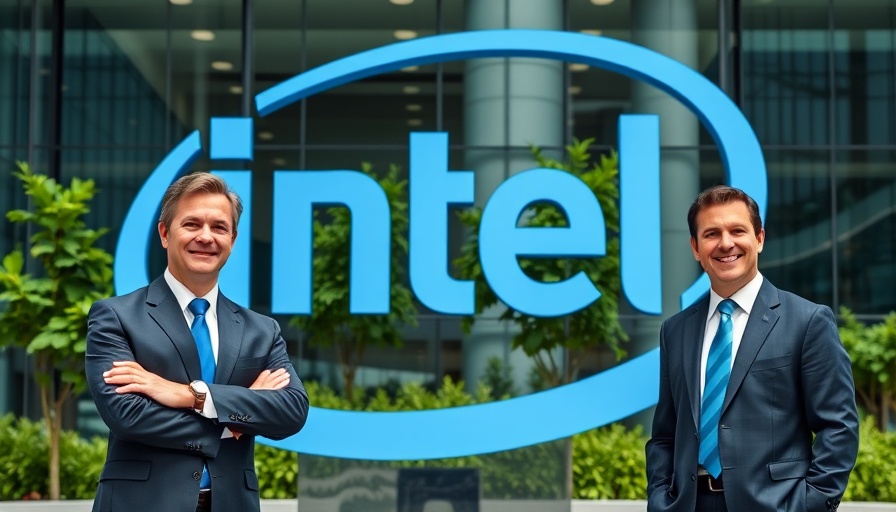
The CHIPS Act and Intel: An Overview of the Proposed Deal
In a significant move, Commerce Secretary Howard Lutnick has confirmed that the U.S. government will require Intel to give up a 10% equity stake in exchange for nearly $8 billion in funding under the CHIPS Act. This initiative, designed to bolster domestic semiconductor production, reflects broader concerns about national security and economic stability in the U.S. Amid escalating tensions in international trade, securing a reliable chip supply is becoming increasingly crucial for American industries.
Why the Equity Stake? Understanding Government Investment
The request for equity stems from a desire to ensure that taxpayer funds are safeguarded. Lutnick emphasized that this approach would allow the government to recoup its investment while supporting a critical American industry in distress. The stakes could significantly increase with Intel’s stock rising by 7% following news of potential government assistance. Many view this as an unprecedented method of funding that may soon influence how future investments in tech companies are handled.
Implications for Local Kansas City Businesses
As national conversations about semiconductor production heat up, Kansas City businesses and residents may be wondering how these developments impact their local economy. The proposed government investment in Intel complements the larger push to attract and nurture tech ecosystems across the nation. If Intel successfully stabilizes its operations and increases production, Kansas City might see new opportunities for partnerships, innovation, and job creation.
Future Predictions: A Changing Political Landscape
This moment not only marks a potential turning point for chip production but also offers insights into shifting political dynamics as we move through 2025. Bipartisan support for tech funding is framed as necessary to protect national interests. Yet, how will this ultimately shape public opinion polls and legislative actions moving forward? It may signify a growing consensus among political leaders that innovation must be a cornerstone of economic policy, creating a ripple effect across various sectors.
National Security and Economic Impacts: The Broader Picture
In a time where technology is intertwined with national security, the implications of this government stake go well beyond financial assistance. The U.S. must produce semiconductor chips domestically to reduce dependence on foreign suppliers, making it a national security priority. If this deal materializes, it will serve as a template for future public-private partnerships and could define how America safeguards its technological edge.
The Role of Public Opinion in Shaping Policy
As developments surrounding the CHIPS Act unfold, public sentiment will play a critical role in shaping the political landscape. Americans increasingly view technological innovation as a core issue. As potential government stakes in tech companies generate mixed reactions, it’s essential to remain informed. Polling data may offer insights into how constituents feel about government investment in private sectors, indicating how these views will influence future political trends.
Conclusion: Stay Informed and Engaged in Local Economy
As Kansas City residents and businesses, it’s vital to understand how national policies could impact local economies. The nuances of the CHIPS Act and its implications for companies like Intel deserve attention and discussion. Have a story to share or want to contact us for more details? Drop us an email at team@kansascitythrive.com.
 Add Row
Add Row  Add
Add 




Write A Comment